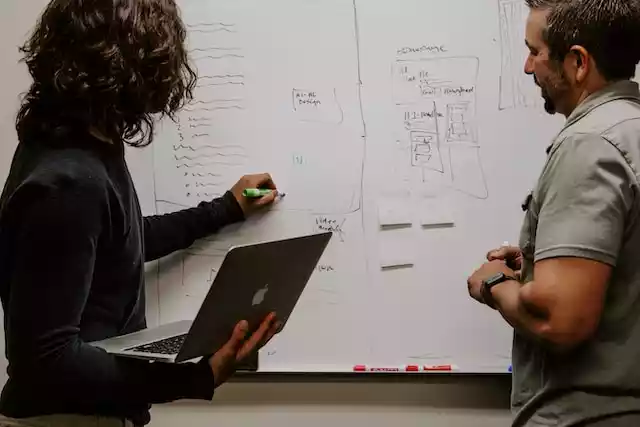13 Most Important Skills a Student Should Have
As a student, acquiring essential skills is crucial for personal development, academic success, and future career prospects.
While academic knowledge forms the foundation, there are several other skills that can enhance a student’s overall growth and prepare them for the challenges of the modern world.
In this article, we will look at the most important skills a student should have, ranging from academic proficiencies to interpersonal abilities and practical know-how.
Table of Contents
As students navigate through their academic journey, they encounter numerous situations that demand a diverse set of skills beyond textbook knowledge.
These skills play a pivotal role in shaping a student’s character, improving their academic performance, and preparing them for a successful future.
1. Critical Thinking and Problem-Solving Skills
Critical thinking and problem-solving skills are fundamental abilities that enable students to analyze situations, evaluate information, and generate creative solutions.
It is one of the most emphasized skill for students to have.
These skills promote logical reasoning, effective decision-making, and the ability to approach challenges with a systematic mindset.
2. Effective Communication Skills
Effective communication skills are essential for students to express their thoughts, ideas, and opinions clearly and confidently.
Strong communication skills encompass verbal, written, and non-verbal forms of expression, fostering meaningful interactions, collaboration, and effective presentation of ideas.
3. Time Management and Organization
Time management and organizational skills are crucial for students to balance their academic commitments, extracurricular activities, and personal responsibilities.
These skills enable students to prioritize tasks, meet deadlines, and maintain a healthy work-life balance.
4. Information Literacy and Research Skills
Information literacy and research skills empower students to locate, evaluate, and utilize information from various sources effectively.
These skills involve the ability to critically assess the credibility of sources, synthesize information, and apply it in academic and real-world contexts.
5. Adaptability and Resilience
In this rapidly changing world that we live in, adaptability and resilience are vital skills for students to navigate through challenges and embrace new experiences.
Challenges are not something new to human, so it is crucial to learn how to adapt.
Hence, students that possess these skills can easily adjust to new environments, handle setbacks, and bounce back from failures with a positive mindset.
6. Collaboration and Teamwork
Collaboration and teamwork skills enable students to work effectively with others, respecting diverse perspectives and leveraging collective strengths.
These skills promote cooperation, active participation, and the ability to contribute meaningfully to group projects and discussions.
7. Leadership and Initiative
Leadership and initiative skills empower students to take charge of their own learning, inspire others, and contribute as active leaders in various settings.
These skills encompass qualities such as decision-making, problem-solving, and the ability to motivate and influence others positively.
8. Digital Literacy
In this digital age, digital literacy is a vital skill for students to navigate technology effectively and responsibly.
Digital literacy involves the ability to use digital tools, critically evaluate online information, protect personal data, and utilize technology for learning and productivity.
9. Financial Literacy
Financial literacy equips students with the knowledge and skills to manage their finances effectively.
It includes understanding concepts like budgeting, saving, investing, and making informed financial decisions that can positively impact their future financial well-being.
10. Emotional Intelligence
Emotional intelligence is the ability to recognize, understand, and manage one’s own emotions and those of others.
Students with high emotional intelligence can build strong relationships, handle conflicts effectively, and demonstrate empathy and self-awareness.
11. Creativity and Innovation
Creativity and innovation skills encourage students to think outside the box, explore new ideas, and approach problems with a fresh perspective.
These skills foster imagination, originality, and the ability to find unique solutions to complex challenges.
12. Networking and Relationship Building
You can’t go wrong with this – networking and relationship-building skills are valuable for students to establish connections, build professional relationships, and access opportunities for growth and development.
These skills involve effective communication, active listening, and nurturing mutually beneficial connections.
13. Presentation and Public Speaking Skills
Presentation and public speaking skills are essential for students to effectively communicate their ideas, deliver engaging presentations, and express themselves confidently in public settings.
These skills enhance self-confidence, persuasion abilities, and the capacity to captivate an audience.
Wrap Up
As a wrap up, students must cultivate a diverse range of skills alongside academic knowledge to thrive in today’s world.
Skills such as critical thinking, effective communication, time management, and adaptability equip students with the tools they need to excel academically, personally, and professionally.
By developing these skills, students can become well-rounded individuals ready to embrace the challenges and opportunities that lie ahead.
FAQs (Frequently Asked Questions)
- What if I lack some of these skills as a student? It’s never too late to develop and improve these skills.
Start by identifying the areas you want to enhance and seek resources such as workshops, online courses, or mentorship opportunities to support your skill development. - Are these skills only relevant for academic success? No, these skills are applicable in various aspects of life, including personal relationships, professional settings, and lifelong learning.
They contribute to overall personal growth and success. - How can I improve my time management skills? To enhance time management skills, try techniques such as creating schedules, setting priorities, breaking tasks into manageable chunks, and minimizing distractions.
- Can these skills be learned outside the classroom? Yes of course! Many of these skills can be developed through real-world experiences, extracurricular activities, internships, and self-directed learning.
Embrace opportunities that allow you to apply and refine these skills. - How can I enhance my digital literacy skills? You can improve digital literacy skills by actively exploring digital tools, taking online courses or tutorials, staying informed about online safety and privacy, and engaging in meaningful online activities.





